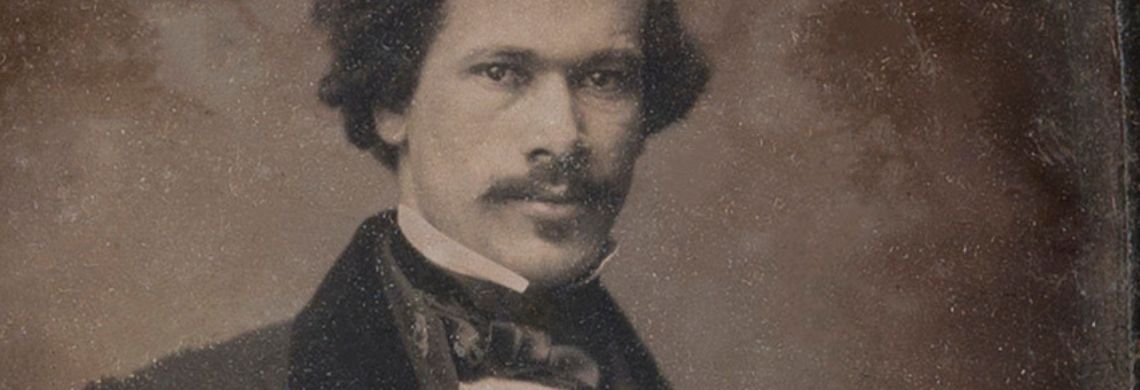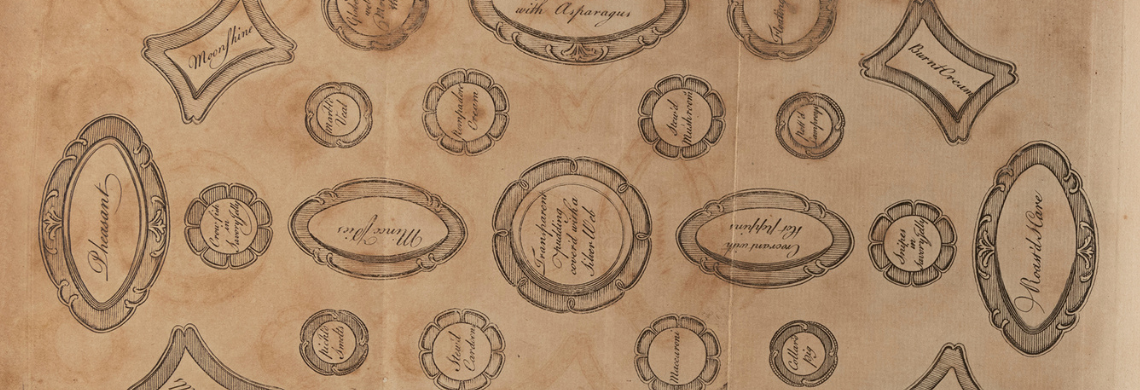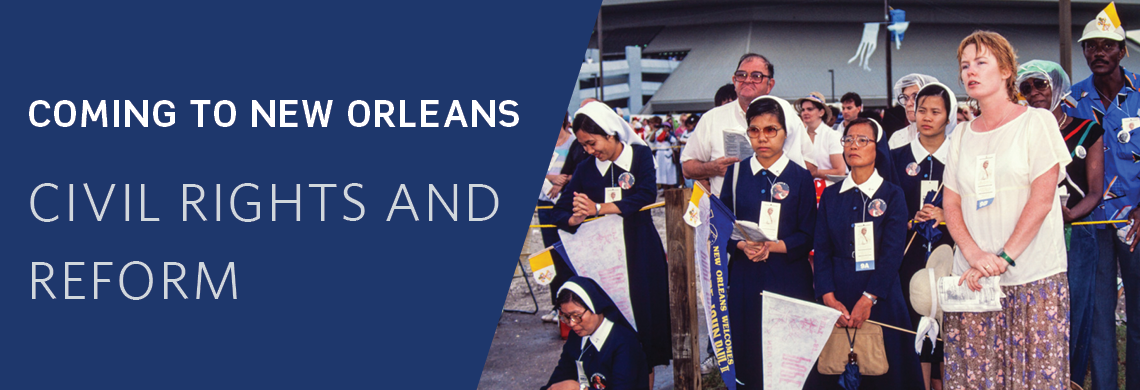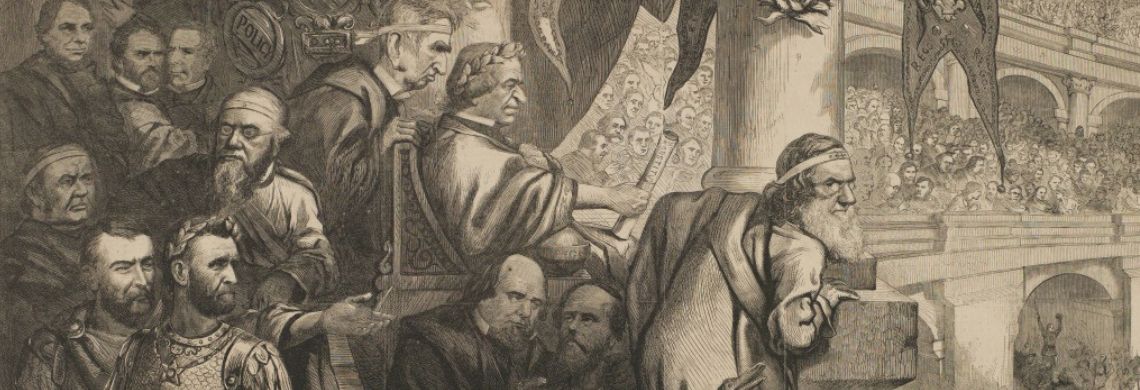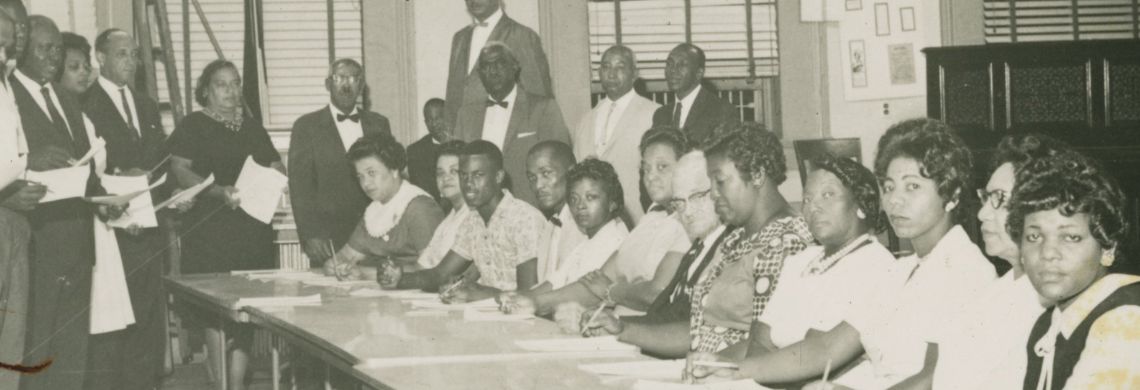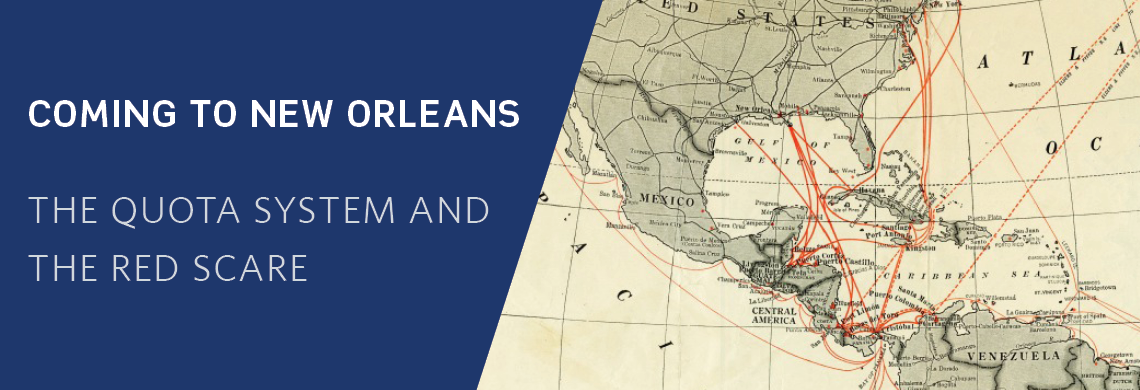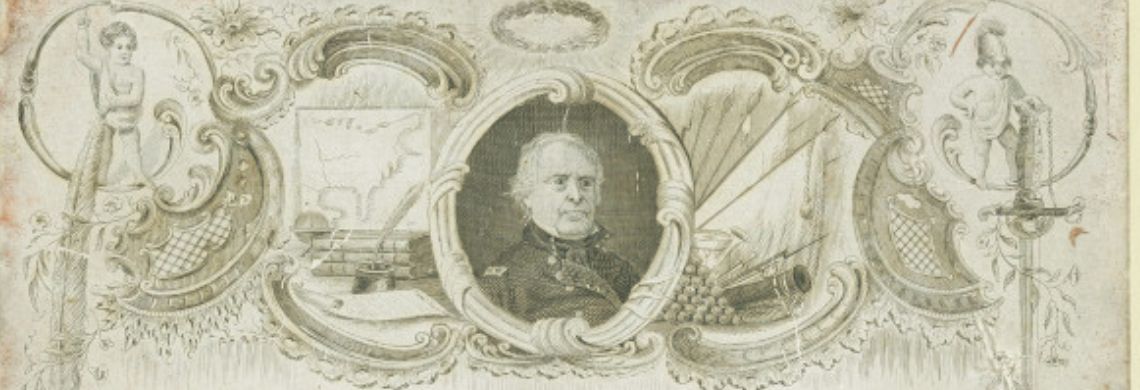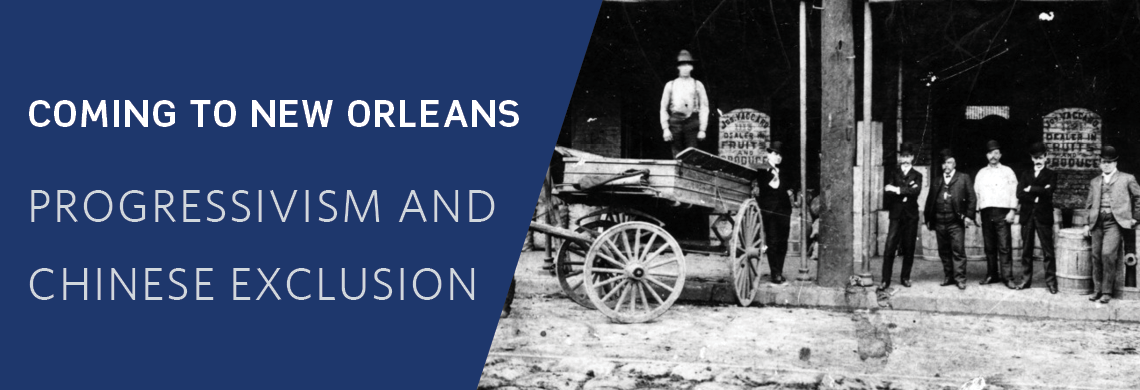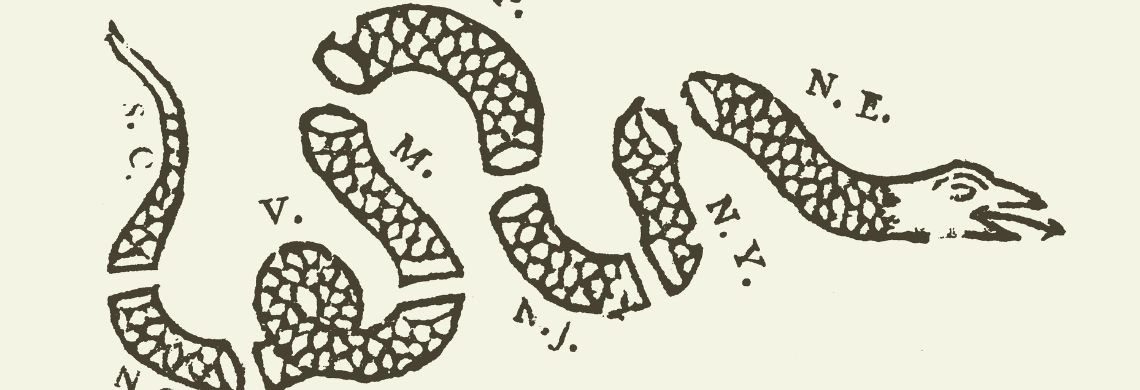A new exhibition explores the historical links between the institutions of slavery and mass incarceration in Louisiana.
A new acquisition highlights the life and work of a leader of the Reconstruction-era civil rights movement in New Orleans.
Items from the the Antoine’s Restaurant Collection shine light on a business, a family, and their place in New Orleans history.
The "Coming to New Orleans" series explores immigration to NOLA from 1965 to Hurricane Katrina, and how it helped build the city we know today.
From neoclassical architecture to street names, southern Louisiana is full of references to the Roman Empire.
Civil rights activist Katie Whickam was a beautician, community leader, and national civil rights organizer who helped thousands of Black Americans access their right to vote.
The "Coming to New Orleans" series explores the grown of the city's Hispanic community in the 20th century.
Lighthearted ephemera from THNOC's holdings shed light on moments in history when New Orleans has welcomed America's Commander in Chief.
The third part of the "Coming to New Orleans" series explores immigration to the Crescent City from the 1860s to the first World War.
As the young republic formed and took its first steps, print media served a crucial role in uniting the nation.



